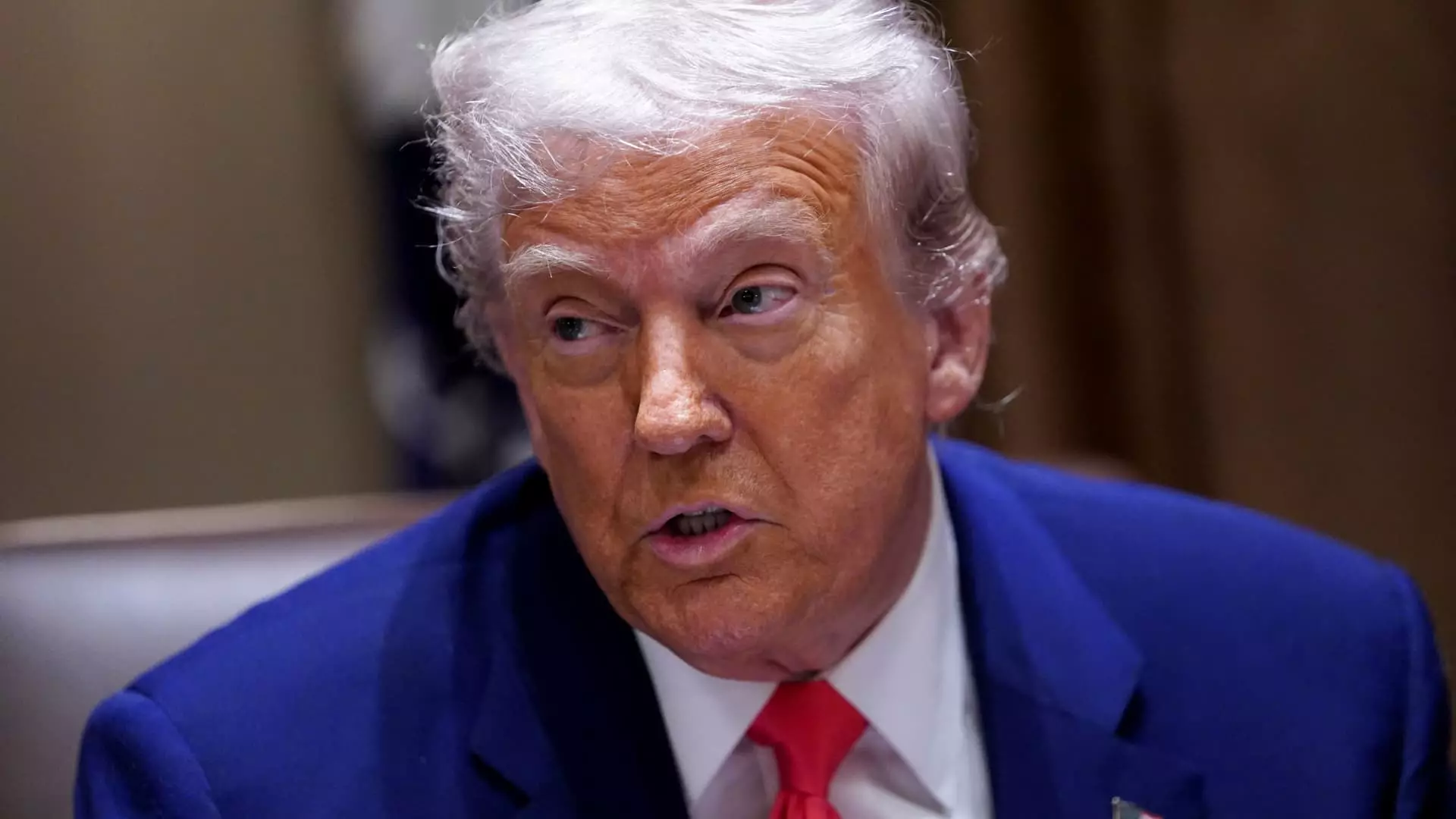The recent announcement from U.S. Customs and Border Protection to exempt crucial tech devices such as smartphones and computers from reciprocal tariffs imposed by President Trump’s administration is a testament to the complex interplay of politics, economics, and technological innovation. The political wing of center-liberalism often seeks balanced approaches to economic challenges, mindful of the consequences for both consumers and businesses. In this nuanced era of trade negotiations, the tech sector’s vital standing raises an urgent conversation about how governmental decisions can directly shape market environments.
The sweeping tariffs of up to 145% on Chinese goods had initially sent shockwaves across the technology landscape, particularly striking fear into notable companies like Apple. Known for its reliance on Chinese manufacturing for a substantial portion of its production—around 80% of iPads and over half of its Mac computers—the company faced the potential of exponential price increases for its flagship products. Such a scenario not only jeopardized corporate profits but threatened the affordability and accessibility of technology for everyday consumers, whose allegiance to brands intricately intertwines with price sensitivity.
The Tech Sector’s Response: A Case Study of Resistance
In the face of such economic overreach, the overwhelming voices from the tech industry did not go unheard. Organizing among major tech players, the call for reconsideration grew louder, emphasizing the potential “Armageddon” for big tech that could emerge from harsh tariff implementations. Analysts like Dan Ives of Wedbush Securities pronounced the tariff exemptions as a groundbreaking shift—”a game changer.” This response illustrates not merely a reactive industry but an active participant in shaping economic policy.
However, in considering this victory for the tech sector, one must ponder the broader implications of such government interventions. Does this consistent back-and-forth between administration and industry undermine the stability that market capitalism strives to maintain? The focus on single-sector interests can be detrimental to the overarching economic health, where a balance must be struck between protecting domestic industries and fostering competitive globalization. The glaring disparity in power between the tech giants and smaller businesses offers a cautionary tale; while the Apples of the world can leverage political influence, the mom-and-pop tech startups struggle for survival in the same market environment.
Exemptions: A Partial Success or a Broader Strategy?
The significance of the exemptions goes beyond mere tariff relief. The guideline’s implications extend into the realm of financial planning for businesses, providing clarity amidst the chaotic trade landscape. Included in the recent announcement, devices such as semiconductors, solar cells, and memory cards stand as crucial elements in the ecosystem of modern technology. While these changes present immediate financial benefits for large companies, one must remain vigilant about the possible encroachment of further duties in the future.
Although many herald this move as a triumph for tech companies, it opens up another narrative: the dependency on a singular foreign economy for vital components. The ‘tech’ arms race is hardly a simple matter of good vs. bad; it starkly reveals the intricacies of global trade. The potential for future sanctions or tariff adjustments remains, as political climates shift rapidly. Consequently, the reliance on a detrimental tariff strategy could eventually morph from a short-term headache to an unsustainable living nightmare for businesses and consumers alike.
The Ripple Effect on Market Stability
As the volatility in Wall Street surged amid the tariffs announcement, the subsequent loss of over $640 billion in market value for Apple alone is a fitting representation of the stakes at hand. The technology sector is inherently sensitive to fluctuations in trade policies and consumer sentiment—two elements that have proven incredibly unstable. Stocks nosediving over 5% highlights a deeper systemic issue, revealing that the interconnectedness of the global economy requires a more predictable approach to trade agreements.
The recent bond market fluctuations, showing a notable increase in 10-year Treasury yields, exemplify how interlinked the global financial landscape truly is. The knee-jerk reactions to trade policies underline not only the potential for substantial market corrections but also evoke concern regarding long-term financial strategies in the tech sector, which serves as a barometer of broader economic health.
In this landscape of rapid technological evolution, the exemption story partly resolves a growing tension but simultaneously beckons the question: how do we achieve long-term sustainability and economic growth amid such palpable uncertainty? The path forward is one of listening—not merely to the loudest voices in the room but to the multitude of perspectives that comprise the vibrant tapestry of our economy.

Leave a Reply